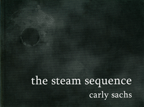In keeping with yesterday's theme of journey, I wanted to share a review of Broken Flowers, which I saw yesterday--what I really love about the movie is the ending. Which is normally what I hate about movies and books, that the ending is never satisfying (clearly, life is about the present moment, not the destination, no?). The best advice I received from writing fiction came from Joyce Hackett (author of Disturbance of the Inner Ear). She told me to begin the story somewhere in the middle---so conversely, I'm interpreting that one should do the same for the ending...to not completley close and tie everything up, no fairy tale ends. This is not to say that they don't exist, but I think it makes for a more honest read/or watch depending on...and now here's what someone else thought about the movie:
In full bloom, 7 August 2005Author: riderpridethemovie from Toronto
Films this restrained can only be made by an experienced filmmaker, a guy who knows what he wants to say and how to say it and doesn't have to worry about impressing everyone with witty banter or fancy camera tricks. Broken Flowers is so restrained, I'm sure it will elicit some of the same responses Bill Murray's last two films (The Life Aquatic, Lost in Translation) received, mainly — what's the big fuss about? The big fuss is that like Jim Jarmusch, Murray's an experienced craftsman, who understands that true talent lies in how much you give to your supporting actors, not in how much spotlight you take. Movie acting is all in the eyes and subtle body language, not in bombast. but mostly it's in being able to listen to your fellow actors. It's counterintuitive, that a visual medium relies so much on quiet, but it's what separates the great performances from the over-hyped. Let's hope that a subtle movie like this one avoids massive media attention, as that would be missing its point. And what, many may ask, is the point of Broken Flowers. At the screening I attended many were confused, others disappointed by the ending. Indeed, if there is one niggling detail that separates this film from perfection, it is the ending. Of course, Indian rugmakers intentionally weave mistakes into their wares, because they believe only God is perfect, my point being that the theme of this film is that in a quest for meaning, sometimes we learn there is no answer or that the answer is complex. In this case, Jarmusch seems to be saying that meaning is already present, but you might only glean it if you are prepared. Murray's character, Don Johnston (with a "T"), only went on the road trip at his neighbour's urging, and clearly felt the whole thing was nonsense. His attitude may have caused him to miss the mystery, but discover new truths. Similarly, the audience may become too fixated with solving the mystery of who the mother of his son is and miss the other truths, namely that Johnston already has a family with his next-door neighbours, and he already has a relationship as good as he would have had with any of his past flames. The pink typewritten letter, the long-lost son, they are not the point of his life. As Johnston himself says, "The past is gone, the future's not here yet. All there is is now."
Here are some things that I have discovered on yesterday's journey:
A dinner and movie date is better done movie, then dinner--go ahead, be wild and crazy!
It is good to try new things, but mint chocolate chip will never let you down.
If you can fall asleep with someone, it doesn't mean that you find them boring, it means that you feel safe around them.
There should be more escalators---it has to do with your prana spot.
DC is way too hot: cool down with some poems from the North:
http://www.icefloepress.org/about.shtml
Subscribe to:
Post Comments (Atom)


No comments:
Post a Comment